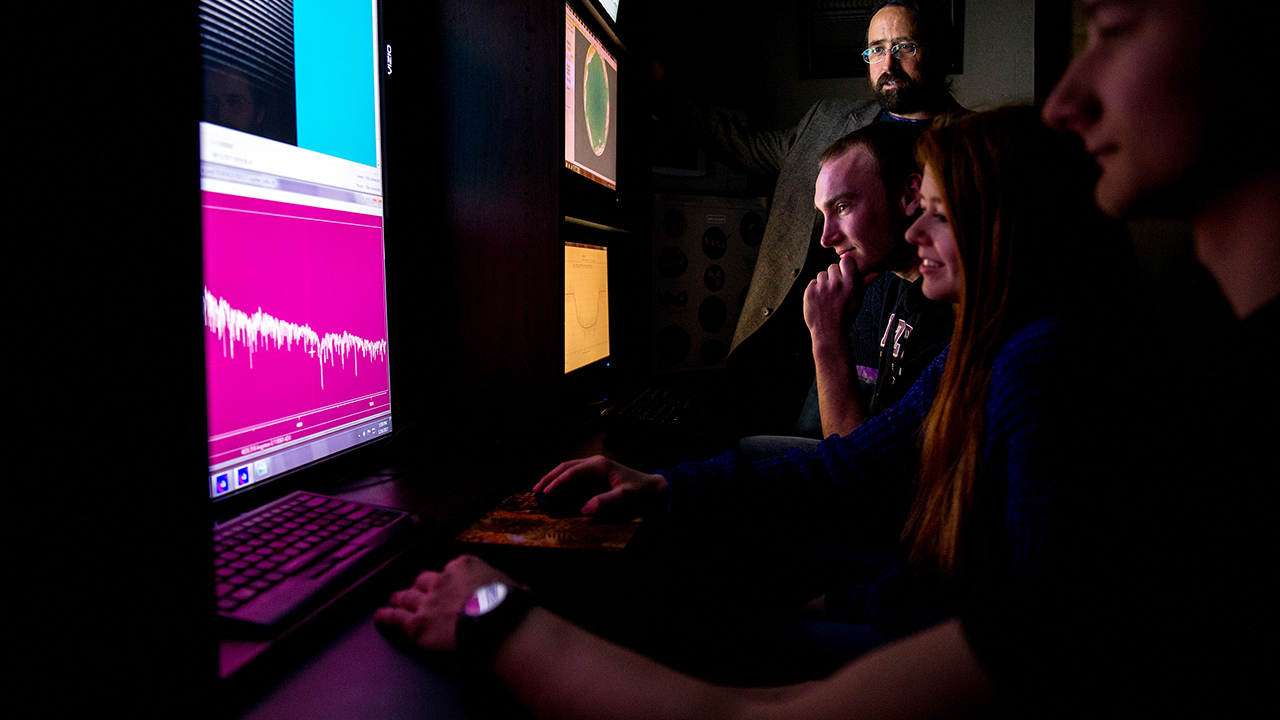
Physics Program
Physics: Astronomy
Bachelor of Science
It is an exciting time to study astronomy. The news regularly reports on topics such as the discovery of exoplanets, the search for water on Mars, gravitational lensing of distant young galaxies, wildly energetic explosions of dying stars, and experiments to detect mysterious dark matter in order to peer back through time to the beginnings of the universe.
Astronomy is interested not only in describing these things, but in understanding how they are formed and how they change and, ultimately, in reconstructing the history of the universe. This understanding is always based upon the same set of theories and practices across several academic disciplines—physics, chemistry, material science, mathematics, computer science—which are used to understand the nature of life and all of existence.
In KU’s on-campus observatory, planetarium, and physics laboratories, you’ll apply theoretical knowledge from your classes to create your own projects, using sophisticated technology to study motion, astronomy, and engineering. You’ll work one-on-one with KU Physics and Astronomy faculty, not teaching assistants, on original research projects and student theses.
On-campus astronomy facilities include a professional research observatory, a planetarium, and a remote sensing laboratory. KU Astronomy students regularly co-author professional research papers and travel worldwide to conduct and present their research. Most recently, several undergraduate students at KU have been have been credited as co-discoverers of new exoplanets in the galaxy.
Many KU graduates go to graduate school to earn Master’s and/or Doctorate degrees. Some become teachers (high school math/science/physics/astronomy). Others enter the workforce in research & development in industry or for the government, or use their data analytics skills to pursue careers in various fields.
The astronomy minor will give students the opportunity to broaden their areas of study through scientific inquiry in astronomy. The population of KU students who might enroll in this minor consists of science majors and non-science majors alike. Any student with strong algebra and critical thinking skills could successfully complete the curriculum for this minor. The astronomy minor will require 20 credit hours.
Program Checksheets
B.S. Physics: Astronomy - Version #2208
Minor Astronomy - Version #2158
Sample Career Options
- Aerospace engineer
- Astronomer
- Astrophysicist
- Climatologist
- Museum educator
- Observatory manager
- Planetarium director
- Research scientist
- Science writer/journalist
- Teacher (high school science)
- Telescope engineer
Student Learning Outcomes






